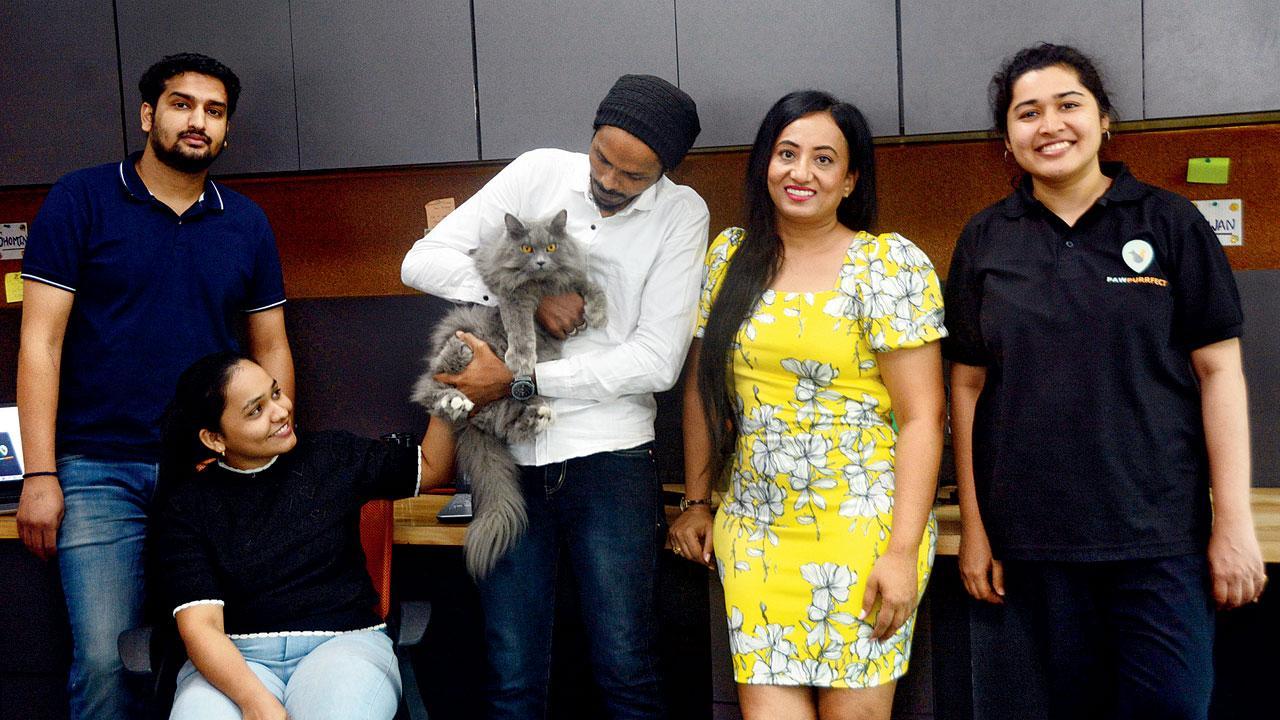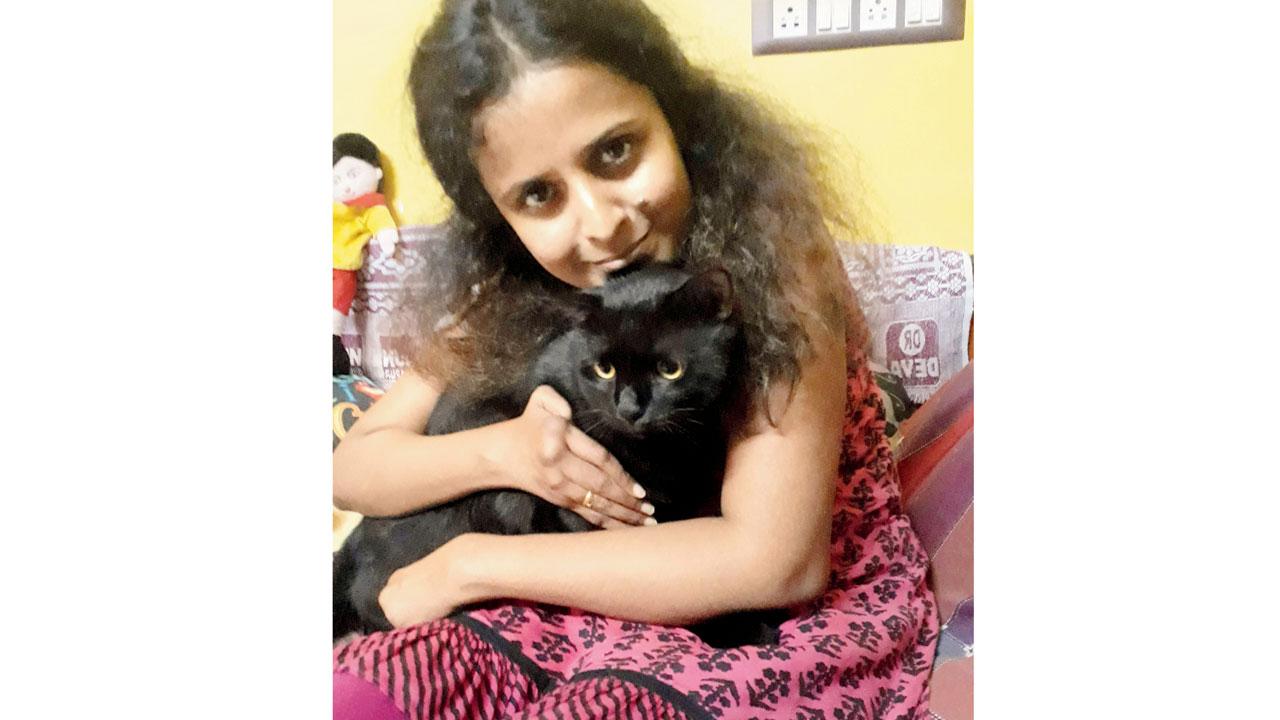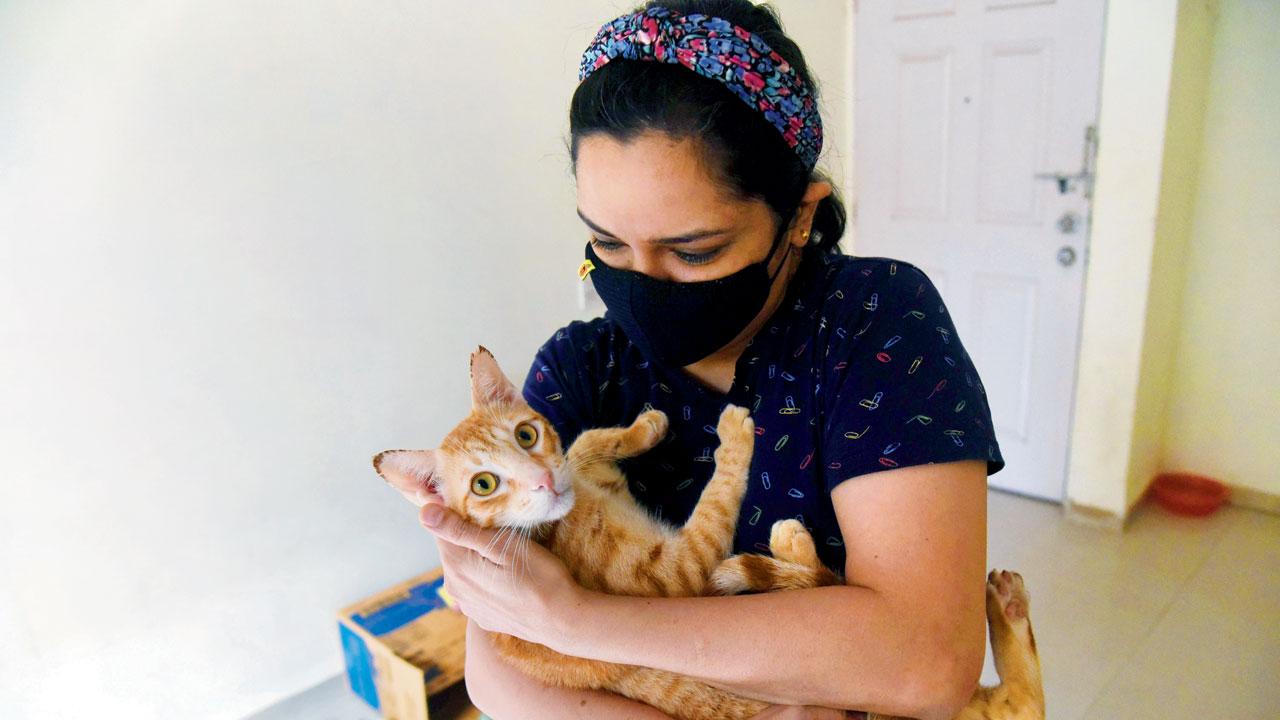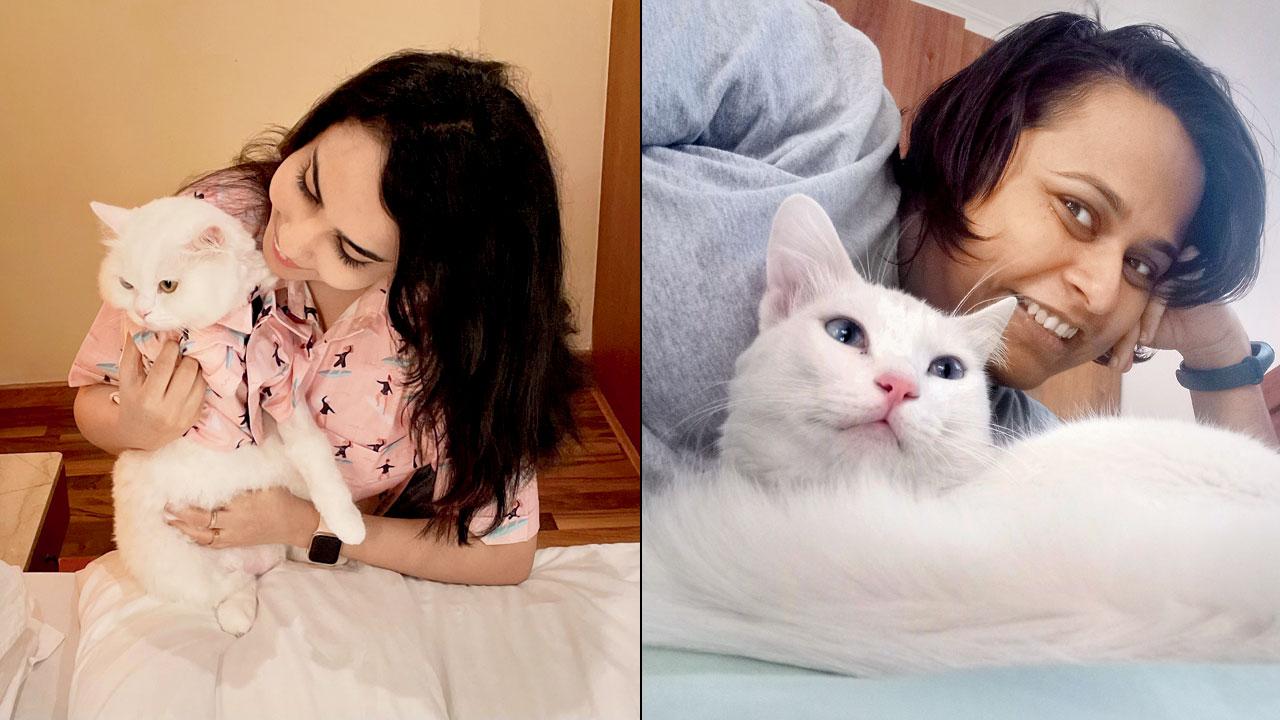A breed of humans take over your homes to tend to your cats when you travel, and they have curious tales to tell

Pawpurrfect owner Mrinalini Khusape has a network of cat-sitters and cat-boarders whose background is verified with due diligence. Employees are accompanied by a cat on most days at their Chembur-based office. Pic/Satej Shinde
When I moved to Mumbai a little less than a year ago, the first thing on my mind was to call my parents over. Apart from the plethora of excuses my father had, this one felt a tad bit more strange. “Who will take care of the cats? They’ll be lonely,” he’d say every time, knowing fully well that our cats in Lucknow have an indoor-outdoors existence, and can hunt or con neighbours for food with cuteness.
So in December, after several emotional pleas, my parents finally decided to visit Mumbai. The house help was requested to stay the night in our Lucknow home to feed cats, change their litter and make sure they weren’t as emotionally bereft as my father imagined. My parents aren’t the only ones; cat parents are known to kill or postpone their travel plans to assure their care. Cat sitters and boarders, these purrfect lovers of the feline are happy to look after your cat child, often for just the food in your fridge and Wi-Fi access.

Dr Neeta Vanjari has been cat-boarding in her home for eight years now. She takes care of cats for not more than 20 days at a stretch, so she can adjust more numbers of them in her home and heart
Coco, the five-year-old Persian cat, has a human called Arushi Batra. With an existence on Instagram, Coco walks around with an air of entitlement. When the Juhu residents planned a holiday abroad, Google brought them to Dr Neeta Vanjari. “I was apprehensive initially,” says the 27-year-old, “because Coco is my baby. But when we met Dr Vanjari at her home and saw how she treated her own cats, we were relieved. Dr Vanjari would send me a photo of him every two hours, and update me about his eating, sleeping and lording around routine. She was available for a video call any part of the day or night. I knew Coco was in safe hands.” This punctiliousness built trust and over the past three years, whenever the Batras travelled, Dr Vanjari’s home has been Coco’s retreat.
Dr Vanjari has always loved cats. “Cat love runs in the family,” quips the 42-year-old, “Even my grandmother was a cat lady.” She started boarding cats eight years ago in her Oshiwara home. “I was rescuing cats and found there was no safe place to keep them,” she says. “So I became that safe place.” Dr Vanjari treats humans only four hours a day, and takes on cats for the maximum of 20 days at a stretch. Her professional services include cuddling, spooning and allowing cats to lie on her. So how does one befriend the stoically choosy feline? “Every cat is different,” she says, “You have to go according to her or his behaviour. I let them be by themselves in the room, explore the space at their own pace. Kittens are friendlier than older cats.”

Farzeen Zaiwalla, 38, is boarding 10 cats at her home, of which many are up for adoption. These were stray cats rescued by those who couldn’t keep them in their own house. Pic/Sameer Markande
Dr Vanjari has “catified” her home for a restful stay. There are toys and wooden shelves at different levels on the wall to satisfy the predatory (and prey’s) need for vantage points. And her attachment to these guests is real. “I felt a divine connection with Daisy,” she says of a regular boarder. “She would just sit by my legs and I would feel blessed and calm. When her mother shifted to Jaipur after marriage, instead of congratulating her, I burst into tears as it meant that Daisy would not board with me anymore.”
The separation anxiety, for the human, is also Sonal Jain’s nemesis. The 30-year-old is currently in Goa house-sitting a cat. “I started rescuing cats and sitting them about two years ago,” she says, crediting a cat with pulling her out of depression. “It is not a one-way process, the cat gives back so much too,” she continues, “S/he reminds me to feed myself, take care of myself, get up from bed even if I am feeling down, because I have to care for him/her, right?” Done with professions that require sole mental work, Jain believes caring for an animal is like caring for an infant, and as fulfilling. But it is not all fun and play, sitting and boarding a cat requires technical knowledge of behavioural science and a bit of medical knowledge, too.

Arushi Batra with her son Coco (right) Sonal Jain with Galaxy, the cat she is sitting in Goa currently
“Some cats I fostered were geriatric, and needed physiotherapy,” says Jain, explaining how it’s not enough just to love cats, “some others were on medication. An indoors-outdoors cat can mostly take care of itself, but an indoor cat needs stimulation in the form of toys, enriched environment and engaging play.” Jain prefers longer duration cat-sitting. This, she says, requires less travel from her own nomadic life and gives time to bond with and train the cat.
Veterinary knowledge that Jain has picked up over the years of rescuing cats and working with vets stands her in good stead. “It is important for one to recognise a mite infection in the nose, ear, or eye,” she says. “You should know how to take a stool or urine sample for testing.”
Jain has sat cats with broken hind legs and those that required diaper changes. Mother and daughter cat duo in Goa, Gaia and Ri, though not in need of special care had the trying eccentricities of any cat. “There was heavy rain,” she recalls with a giggle as we speak with her over the phone. “I fed the cats, played with them and put them to bed. When I went to bed, Ri would run into the hall and turn on the lights. She did it three times just to annoy me. It was cute.”
Not just individuals, start-ups such as Pawpurrfect have a meticulous network of cat-sitters they take on board only after background verification that is as diligent as that of a bank. Mrinalini Khusape, founded the company two years ago after Mau’mau came into her life from a gutter and she could not find a paid foster parent. “The 10- to 12-day old kitten had to be fed every 2.5 hours,” says the Chembur resident, “I would set alarms and this went on for six weeks, I could not go out of the house or make weekend plans. Then I started Pawpurrfect.”
She recalls various clients including a senior HR personnel who needed help to care for her sick cat while she fielded back-to-back office calls, and those who wanted to travel with peace of mind. Sitters came to Khusape’s rescue. “We had a cat-sitter, who has since moved,” she says, “who would travel to Kurla from Kandivli just for this. Vet students would also house-sit for us and give valuable feedback too.”
Asked about the eccentric demands of cat parents, Khusape breaks into a laugh. “My own cat eats dhaniya every morning as a mouth freshner. I have to tell this to cat-sitters. And the coriander has to be two days old and dried out. She won’t chew fresh, tender leaves, nor those bought off the internet; only the thela variety for her.”
And a cat caregiver expects these eccentricities. These are cats after all. Farzeen Zaiwalla shifted to caring for cats from children when the pandemic took away her job in a school’s daycare. She’s not shy to say she prefers tending to animals than human kids. Zaiwalla currently has 10 cats in her Kandivli home, and only one of them is hers; the rest are up for adoption.
“These cats have virtual parents,” she says, “which means they were rescued but could not be kept by the rescuers, and so they are with me. Their financial care is the responsibility of the virtual parents who come to meet them sometimes. Once the cats are healthy, they are put up for adoption.” However, as any animal person knows, it’s a quick slope from one to 22 cats. And foster fails are the norm, not the exception.
 Subscribe today by clicking the link and stay updated with the latest news!" Click here!
Subscribe today by clicking the link and stay updated with the latest news!" Click here!








